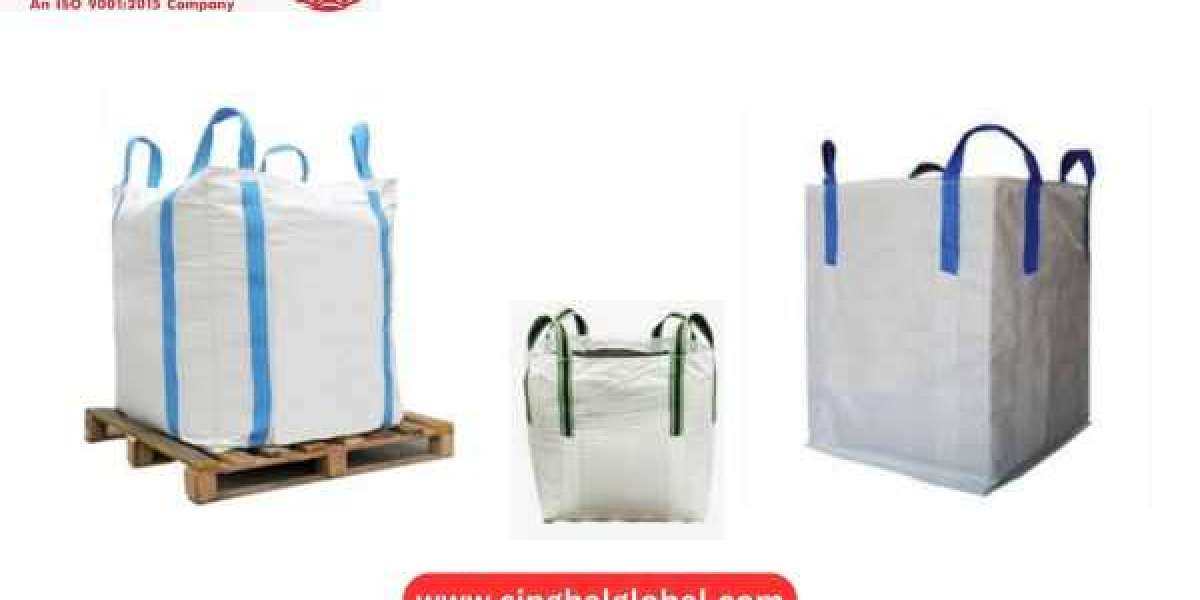Polypropylene (PP) jumbo bags, often referred to as big bags, FIBC (Flexible Intermediate Bulk Containers), or bulk bags, have become a cornerstone in the logistics and packaging industry. These large, durable bags are used to transport a wide variety of bulk goods, ranging from agricultural products to industrial materials. Their popularity lies in their versatility, cost-effectiveness, and strength, which make them an excellent alternative to traditional packaging options like boxes or drums.
What Are PP Jumbo Bags?
PP jumbo bags are large, flexible containers made primarily from polypropylene, a robust plastic polymer. These bags are designed to carry and transport bulk quantities of dry products in various industries. They come in several sizes, generally ranging from 500 kg to 2,000 kg, and can be tailored to meet specific packaging requirements.
The bags are constructed from woven polypropylene fabric, which is durable and resistant to wear and tear. Their construction ensures that they can withstand heavy weights and challenging conditions during handling, storage, and transportation.
Key Features of PP Jumbo Bags
Durability: PP jumbo bags are made from high-quality polypropylene material, making them highly resistant to abrasion, tears, and punctures. This durability is vital for transporting heavy or sharp products like minerals, chemicals, or construction materials.
Lightweight yet Strong: Despite their large size, PP Jumbo Bags are lightweight, which helps reduce overall transportation costs. The bags are strong enough to hold substantial loads, ensuring safe delivery without the risk of breakage.
Customizable Designs: One of the greatest advantages of PP jumbo bags is their customizability. These bags can be designed with various features such as inner linings for moisture protection, spouts for easy filling and discharge, or UV resistance to prevent degradation from sunlight exposure.
Reusability: Unlike many single-use packaging options, PP jumbo bags can be reused multiple times if handled properly. This is an environmentally friendly feature that appeals to companies seeking to reduce their carbon footprint and minimize waste.
Cost-Effective: PP jumbo bags are relatively inexpensive compared to other bulk packaging solutions like wooden crates or metal drums. The low cost combined with their reusability and strength makes them a popular choice for businesses worldwide.
Applications of PP Jumbo Bags
PP jumbo bags are widely used across various industries. Their capacity, strength, and versatility make them ideal for packaging large quantities of goods that are difficult to transport with conventional packaging methods. Some common applications include:
Agriculture: These bags are often used to store and transport grains, fertilizers, seeds, and other agricultural products. Their ability to hold large amounts of produce while protecting them from moisture and pests is critical in the agricultural sector.
Construction and Building Materials: In the construction industry, PP Jumbo Bag are frequently used to transport sand, gravel, cement, and other building materials. The robust nature of the bags ensures that they can handle the weight and rough handling during transport.
Chemicals and Fertilizers: Many chemical products, including powdered and granular substances, are packaged in PP jumbo bags. These bags provide an excellent barrier against environmental contaminants, ensuring that the contents remain safe and uncontaminated.
Food Industry: While not all PP jumbo bags are suitable for direct food contact, those that are designed with food-grade polypropylene are commonly used in the packaging of items such as sugar, flour, rice, and powdered milk. The bags ensure that the products remain hygienic and free from contaminants during transport.
Textile and Fiber Industry: PP jumbo bags are also used in the textile industry to package and transport raw fibers, such as cotton, wool, and synthetic fabrics. Their ability to carry large, bulky items makes them perfect for this purpose.
Advantages of Using PP Jumbo Bags
Enhanced Storage Efficiency: PP jumbo bags help optimize storage space due to their compact and stackable design. When filled, these bags can be stored in warehouses and containers with minimal space requirements.
Protection from External Elements: Depending on the design, PP jumbo bags can provide protection from moisture, UV rays, dust, and other external factors that could damage or degrade the products inside. This is especially important when transporting chemicals or sensitive agricultural products.
Ease of Handling: These bags are equipped with lifting loops that make them easy to handle with forklifts, cranes, and other lifting equipment. Some bags also feature filling and discharge spouts for easy loading and unloading.
Environmentally Friendly: PP jumbo bags are recyclable, which reduces the environmental impact of packaging waste. Many businesses recycle used bags, while others opt for biodegradable versions to minimize their ecological footprint.
Safe and Secure Transportation: The strength and durability of Jumbo jumbo bag ensure that they can safely transport goods over long distances. Whether they are shipped via truck, rail, or ship, these bags are designed to withstand harsh conditions and rough handling during transit.
Challenges and Considerations
Despite their many advantages, there are some considerations that businesses must take into account when using PP jumbo bags. These include:
Improper Handling: If PP jumbo bags are not handled correctly during loading, unloading, or storage, they can be prone to tearing or puncturing, which could result in product loss or contamination.
UV Degradation: Exposure to direct sunlight can degrade polypropylene over time, causing it to become brittle and weaker. To mitigate this, UV-resistant bags or proper storage methods should be used, especially for long-term outdoor storage.
Contamination Risk: When used for food products, it is essential to ensure that the PP jumbo bags are made from food-grade materials and that they are kept clean to avoid contamination.
Conclusion
PP jumbo bags are an indispensable tool for industries requiring bulk packaging solutions. Their durability, versatility, and cost-effectiveness make them ideal for transporting a wide variety of goods. As businesses continue to look for ways to streamline operations and reduce costs, PP jumbo bags offer a practical, reliable, and environmentally friendly option for bulk packaging.
With proper handling and maintenance, these bags can serve as an effective solution for many years, contributing to both the operational efficiency of businesses and the safe delivery of goods to customers around the world.
Frequently Asked Questions
What are PP jumbo bags made of?
What are the different types of PP jumbo bags?
Standard Bags: Basic design for general use.
Bags with Liner: For moisture-sensitive products.
UV-Resistant Bags: Designed to withstand sun exposure.
Food-Grade Bags: Made with food-safe materials for agricultural and food product transport.








